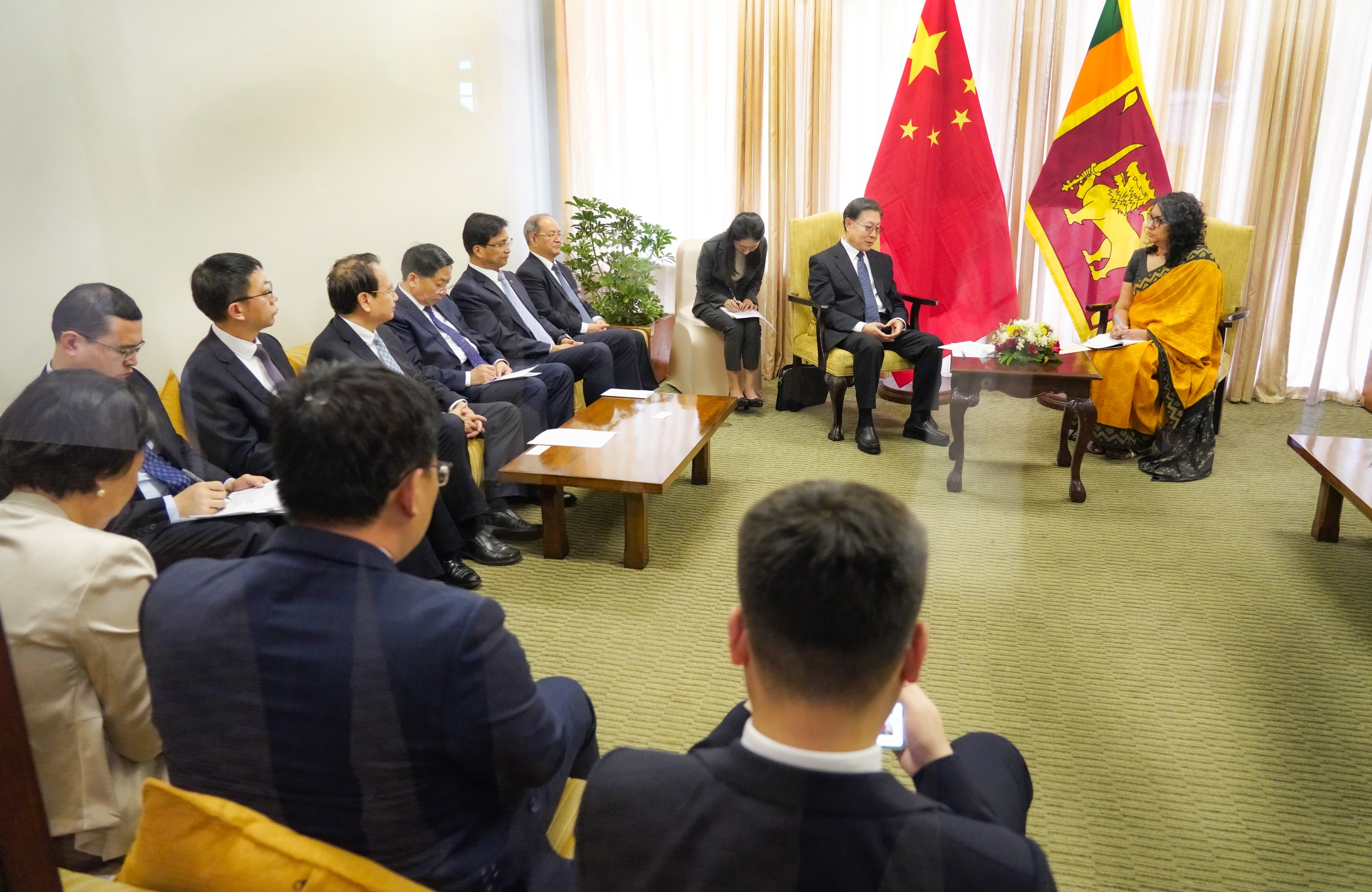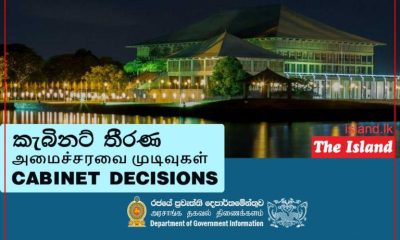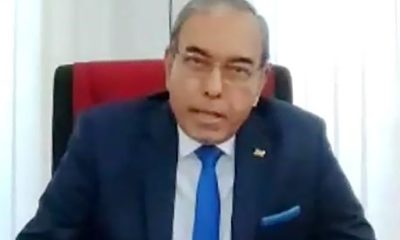The Colombo Development Dialogues on Green Development, an initiative of the Ministry of Environment, together with the United Nations Development Programme (UNDP) in Sri Lanka, and other co-convening partners, successfully concluded recently.
A UNDP has said: Building on rich discussions, spread over two weeks, the final two sessions, held on Oct 21 and 22, sought to explore green financing possibilities and frame a multistakeholder approach to green development.
With a special address from the UK government’s COP26 Regional Ambassador to Asia-Pacific and South Asia, Ken O’Flaherty, highlighted the importance of countries adopting greener growth trajectory to avoid a spike in greenhouse gas emissions as well as how Government, private sector, and others, including the general public, have a vested interest in pursuing climate action. The COP26 summit, currently taking place in Glasgow until mid-November, will convene a broad spectrum of stakeholders to accelerate action towards the goals of the Paris Agreement and the UN Framework Convention on Climate Change. This year’s summit is expected to be decisive– with many stakeholders believing this year’s event to be the final global opportunity to agree on climate change controls and the ramifications of planetary pressures caused by unsustainable development practices.
The session on green financing, featuring prominent government stakeholders such as, T.M.J.Y.P. Fernando, Deputy Governor, Central Bank of Sri Lanka, who spoke on the role and contribution of the finance sector towards leveraging green finance for development, and Central Bank’s commitments for sustainable financing. This was discussed in the context of a ‘Roadmap for Sustainable Finance in Sri Lanka’ launched by the Central Bank of Sri Lanka with the financial assistance of the Biodiversity Finance Initiative (BIOFIN) of UNDP along with technical assistance of the International Finance Corporation (IFC), in consultation with multiple other key stakeholders.
Thomas Beloe, Chief of Programme, UNDP Finance Sector Hub, emphasised the need to bridge the SDG financing gap and the inefficient allocations of resources such as through continuous investments in carbon-intensive sectors, thus stressing the need for a systemic change to incorporate sustainable development at its core.
In addressing the need for a multistakeholder approach to green development, Sanjaya Mohottala, Chairman, Board of Investment of Sri Lanka, outlined the aim and vision of the Government as well as opportunities from and challenges to green financing and green investment through collaboration. Bringing in a private sector perspective, Manjula De Silva, Secretary General and CEO, Ceylon Chamber of Commerce, stressed upon the importance of monetary incentives and concessionary financing for a sustainable transition of traditional business practices to develop better corporate citizens.
The government’s commitment and drive to take this initiative forward was further emphasised by Dr. Anil Jasinghe, Secretary to the Ministry of Environment and the Presidential Task Force (PTF) on ‘Creating a Green Sri Lanka with Sustainable Solutions to Climate Change’ at the closing session, who spoke to how this multistakeholder Mobilisation Platform will facilitate not only the overall implementation of a National Framework for Green Development in Sri Lanka, but will also support to the realization of other specific plans of action, including the Nationally Determined Contributions and the National Environment Action Plan, among others yet to be developed by the PTF.
The final two sessions also featured Mr. Reda Souirgi, Country Director, French Development Agency; Jonathan Drew, Managing Director, ESG Solutions, Global Banking, HSBC; Hajar Alafifi, Chairperson and Managing Director, Unilever Sri Lanka Limited; Dr. Hong-Sang Jung, Director, K-Water in Daejeon, Republic of Korea; Bettina Heller, Programme Officer, Consumption and Production Unit, UNEP; and Robert Juhkam, Resident Representative, UNDP Sri Lanka.
Panelists also included Dr. Dushni Weerakoon, Executive Director, the Institute of Policy Studies; Gulshan Vashistha, Regional Investment Lead – Asia-Pacific, Global Green Growth Institute; Ranga Pallawala, National Climate Finance Advisor, Commonwealth Secretariat; Victor Antonypillai, Country Officer, International Finance Corporation (IFC), Stuart Rogers, Interim Chief Executive Officer, HSBC; Dr. Kokila Konasinghe, Director, Centre for Environmental Justice; Mushtaq Memon, Regional Coordinator for Resource Efficiency, Asia-Pacific office, UNEP; Dr. A. Sivakumar, General Manager, Regulatory Affairs South Asia, Unilever; Kumudini Vidyalankara, Director, Climate Change Secretariat, Ministry of Environment; and Dr. Rene Van Berkel, Representative of the United Nations Industrial Development Organisation for Sri Lanka, Bhutan, India, Maldives, and Nepal.
The Colombo Development Dialogues on Green Development brought together 20+ partners and close to 40 speakers joining from nearly 10 countries across four days. The dialogues aimed to reaffirm Sri Lanka’s climate and environmental commitments, by encouraging policymakers to consider bringing cohesion to diverse green initiatives and creating a multistakeholder platform to support the positioning of green development in the country as an urgent and all-encompassing priority.
Aligned with the foci of the Sustainable Development Goals, the dialogues helped frame narratives on innovative policy making, sustainable financing, and multi-stakeholder collaboration that will allow key stakeholders to articulate policy underpinnings to support the formulation of a National Framework for Green Development in Sri Lanka.

































